Athlete Toughness
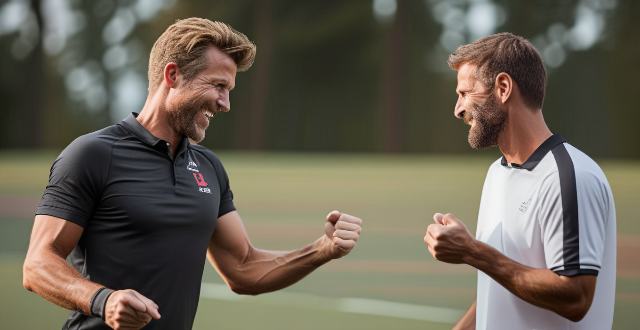
How does mental toughness impact athletic performance at a competitive level ?
In summary, this article explores the impact of mental toughness on athletic performance at a competitive level. It highlights the benefits of mental toughness, including enhanced focus and concentration, improved resilience and coping mechanisms, increased confidence and self-belief, and better decision making under pressure. The article also provides practical tips for developing these essential skills through mindfulness techniques, visualization, positive self-talk, scenario training, and continuous self-improvement. Overall, mental toughness is crucial for athletes to perform at their best and achieve success in their chosen sport.
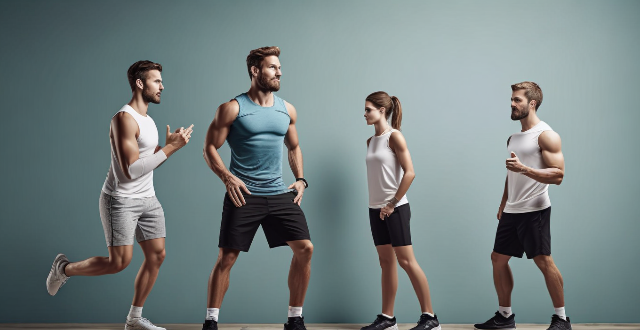
How can mental toughness be developed in athletes through sports psychology ?
The article discusses the importance of mental toughness in sports and how sports psychology can help athletes develop this quality. It outlines six ways that sports psychologists can assist athletes in developing mental toughness, including goal setting, self-talk, visualization techniques, stress management, mindfulness practices, and team building activities. These strategies can enhance resilience, focus, and motivation in athletes, leading to success in their chosen sport.

Can virtual reality training improve athlete skills ?
Virtual reality (VR) technology has been increasingly utilized in sports training, raising the question of whether it can improve athlete skills. The answer depends on several factors, including the type of sport and specific skills required. VR platforms offer a novel medium to develop cognitive skills such as concentration and alternating attention. They can be highly beneficial for sports requiring precision and accuracy, providing a controlled environment for repeated practice and immediate feedback. However, VR should not replace traditional physical training entirely but be used as a supplementary tool. Additionally, VR can help athletes mentally prepare for competition by simulating game scenarios and practicing decision-making skills under pressure. The effectiveness of VR training depends on various factors, and its evolution in sports training programs will be interesting to observe as technology advances.

What strategies can coaches use to foster resilience and mental toughness in their athletes ?
Strategies for Coaches to Foster Resilience and Mental Toughness in Athletes: Emphasize the Importance of Mindset: Encourage positive self-talk, visualization techniques, and goal setting. Build a Supportive Environment: Create an open communication environment, promote teamwork, and provide constructive feedback. Teach Coping Mechanisms: Introduce stress management techniques, problem-solving skills, and time management strategies. Incorporate Adversity Training: Simulate pressure situations, discuss overcoming setbacks, and incorporate physical challenges. Lead by Example: Model resilience, share personal experiences, and show a commitment to continuous learning.
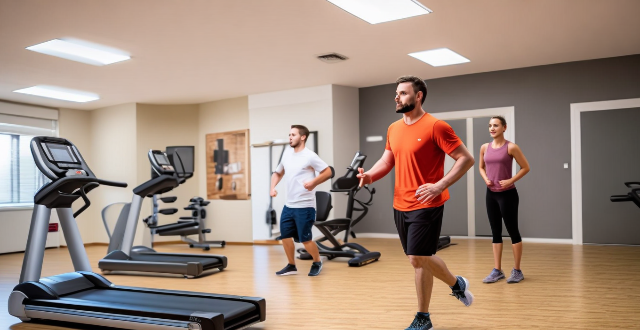
Can AI improve sports performance and athlete safety ?
Artificial Intelligence (AI) is transforming the sports industry by enhancing athletic performance and ensuring athlete safety through personalized gear design, optimized nutrition and training schedules, and injury prevention. AI's predictive capabilities help in preemptive measures against injuries, while wearable technology provides real-time data for monitoring an athlete's physical state. The future of AI in sports holds immense potential for real-time feedback, strategy adjustments, and fair play enforcement.

What are the most common metrics used in analyzing sports performance ?
Analyzing sports performance is crucial for athletes, coaches, and teams to improve their skills, strategies, and overall performance. There are several metrics used to evaluate different aspects of sports performance, including time-based metrics such as speed and pace; distance-based metrics such as distance covered and displacement; power-based metrics such as peak power and power endurance; technique-based metrics such as form analysis and biomechanical analysis; physiological metrics such as heart rate and VO2 max; and mental metrics such as mental toughness and motivation levels. These metrics can help athletes and coaches identify areas for improvement and develop effective training programs to enhance performance.

How can sports psychology help athletes manage stress and pressure during competitions ?
Sports psychology helps athletes manage stress and pressure during competitions by providing techniques and strategies to improve mental toughness, confidence, and focus. These techniques include goal setting, visualization, breathing exercises, mindfulness and meditation practices, and coping strategies such as problem-solving and emotion regulation. By implementing these tools, athletes can improve their performance and enjoy their sport more fully.
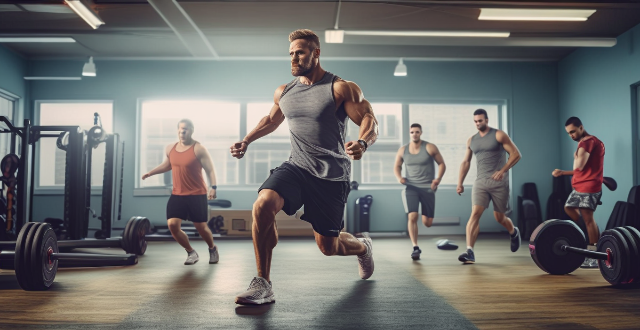
What are the key elements of a successful sports training program ?
A successful sports training program is essential for athletes to improve performance and achieve goals. Key elements include clear objectives, comprehensive planning, variety and progression in workouts, proper technique and form, recovery and regeneration strategies, mental toughness and focus, nutrition and hydration, and continuous assessment and adjustment. By incorporating these elements, athletes can maximize potential and minimize risk of injury and burnout.

How do high-tech training facilities contribute to athlete development and recovery ?
High-tech training facilities contribute to athlete development and recovery by providing advanced equipment, technologies, and personalized programs. These resources help improve performance, prevent injuries, and facilitate efficient recovery.
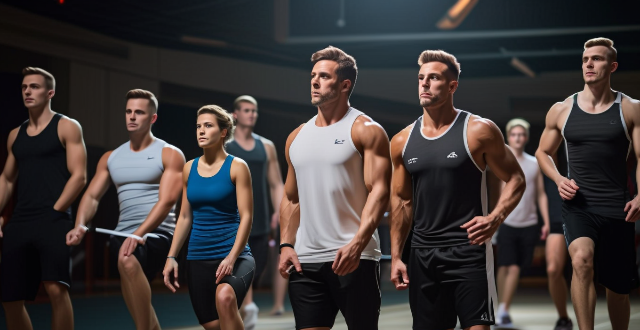
How does sports psychology differentiate between elite and average performers ?
In sports psychology, elite athletes are distinguished from their average counterparts by a combination of psychological traits, physiological factors, and environmental influences. Key differences include mental toughness, self-confidence, focus, emotional regulation, motivation, and the quality of support systems. Elite performers typically exhibit superior resilience, set ambitious goals, maintain better concentration, manage emotions effectively, possess intrinsic motivation, and train in environments that foster excellence. In contrast, average performers may struggle with these aspects, leading to suboptimal performance. Understanding these distinctions can help coaches, athletes, and sports psychologists develop strategies for improvement and success.

What is the role of biometric monitoring in athlete health and fitness ?
Biometric monitoring is a valuable tool for athletes to optimize their performance, recovery, and overall well-being. By collecting and analyzing data related to an individual's physical characteristics, such as heart rate, skin temperature, and body composition, athletes can gain insights into areas where they may need improvement or make adjustments to their training regimen. Biometric monitoring can also help athletes monitor their recovery from workouts and competitions, optimize their training regimens, prevent injuries, and enhance their overall well-being. Overall, biometric monitoring plays a crucial role in athlete health and fitness by providing valuable insights into performance, recovery, training regimens, injury prevention, and overall well-being.
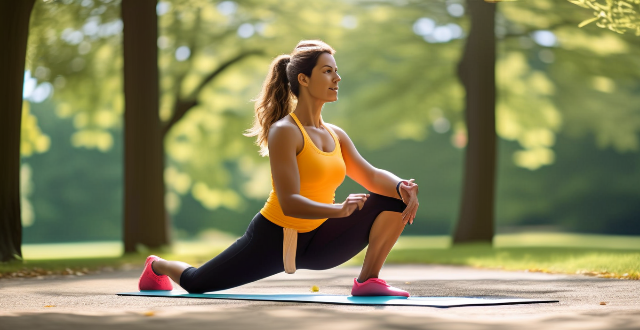
What is the best way to structure a training program for a beginner athlete ?
As an AI assistant, I can provide general guidelines and tips on how to structure a training program for a beginner athlete. Before starting any training program, it is important to set clear goals and objectives. Every training session should start with a warm-up and end with a cool-down period. Strength training should be a key component of any beginner athlete's training program. Cardiovascular training is essential for improving endurance, burning calories, and enhancing overall health. Flexibility and mobility are often overlooked but are crucial for preventing injury, improving performance, and maintaining good posture. Recovery and rest are equally important as training itself. By following these guidelines and seeking guidance from qualified coaches or trainers, beginner athletes can safely and effectively improve their fitness levels and achieve their desired outcomes.
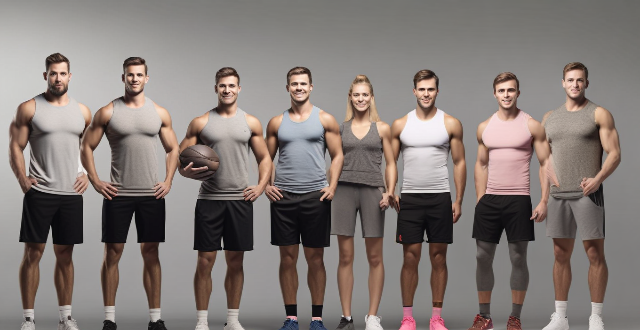
How does participating in extreme sports affect mental toughness and risk-taking behavior ?
Extreme sports can positively affect mental toughness and risk-taking behavior, helping individuals build resilience and manage risks effectively. However, it is crucial to prioritize safety and recognize personal limitations.

Can rigorous training compensate for natural talent in achieving high-level sports performance ?
In sports, the debate between natural talent and hard work continues. While some argue that raw talent is key to success, others believe rigorous training can overcome any lack of innate ability. The reality is that both factors play a significant role in achieving high-level sports performance. Natural talent often manifests itself in physical attributes such as strength, speed, agility, and endurance, giving athletes an advantage in certain sports. Mental acuity also plays a crucial role in athletic performance, with quick reflexes, strategic thinking, and calmness under pressure being important traits. However, rigorous training cannot be overlooked when it comes to achieving high-level sports performance. Through consistent practice and dedication, athletes can develop and refine their skills, making up for any deficiencies in natural talent. Rigorous training also improves an athlete's physical conditioning and mental toughness, essential for overcoming challenges and setbacks throughout their career. To maximize potential, coaches and trainers should adopt personalized approaches based on each athlete's unique strengths and weaknesses. This might involve focusing more heavily on skill development for those with less natural talent or emphasizing mental toughness training for athletes who already possess impressive physical attributes. By tailoring training programs to individual needs, athletes can make the most of their natural talents while simultaneously addressing areas where they may be lacking. Achieving high-level sports performance requires a commitment to continuous improvement. Whether an athlete relies more heavily on natural talent or rigorous training, there is always room for growth and development. By embracing this mindset and striving for excellence in all aspects of their game, athletes can push themselves to reach new heights and achieve success beyond what they may have initially thought possible.

How do Paralympic athletes train and compete in their respective sports ?
Paralympic athletes, like their Olympic counterparts, undergo rigorous training regimens to compete at the highest level. However, their training and competition processes often involve unique adaptations due to their disabilities. Paralympic sports have a unique system called "classification" which determines how an athlete's impairment affects their performance in a given sport. Athletes are evaluated and placed into different classes based on their functional ability, ensuring fair competition. Many sports use modified equipment designed to accommodate specific impairments, such as prosthetic limbs for amputee athletes or wheelchairs for those with lower limb disabilities. Rules are often adjusted to account for different abilities, ensuring that all athletes can participate effectively. Paralympic athletes engage in strength, endurance, and skill-specific training tailored to their needs and capabilities. They may work with specialized coaches who understand how to maximize performance despite physical limitations. Athletes might need to adapt techniques used by able-bodied athletes to suit their own bodies and equipment. For instance, a wheelchair basketball player will have a different shooting technique compared to a standing player. Just like any high-level athlete, mental preparation is crucial for Paralympians. They may work with sports psychologists to develop strategies for dealing with competition stress and maintaining focus. Before an event, athletes go through warm-up routines specific to their needs. They also ensure that their equipment is properly adjusted and ready for competition. Athletes compete according to the rules of their sport, with classification taken into account during events. They demonstrate not only physical prowess but also strategic thinking and mental toughness. After competing, athletes cool down and recover just like any other athlete. They review their performance with coaches to identify areas for improvement. Paralympians often face additional challenges related to their disabilities, such as pain management or fatigue. They work closely with medical professionals to manage these issues and maintain peak performance. Venues must be accessible and equipped to handle the specific needs of Paralympic athletes. This includes ramps instead of stairs and adequate space for wheelchair users.

How do sports psychologists help athletes deal with performance anxiety ?
Sports psychologists use various techniques to help athletes manage performance anxiety, including assessment and goal setting, cognitive behavioral techniques, building mental toughness, establishing routines, fostering social support, and ongoing assessment. These strategies aim to enhance an athlete's mental resilience and enable them to perform optimally under pressure.

Are there any risks or drawbacks associated with sport psychology counseling ?
Sport psychology counseling is a specialized form of psychological intervention that aims to enhance athletic performance, improve mental toughness, and foster personal growth in athletes. While the benefits of sport psychology counseling are well-documented, it is essential to consider any potential risks or drawbacks associated with this type of intervention. The risks and drawbacks include: - Lack of qualified professionals - Overreliance on counseling - Inappropriate interventions - Ethical considerations - Financial costs - Cultural differences To mitigate these risks, athletes should seek out qualified professionals with appropriate certifications and experience in sport psychology counseling, communicate openly with their counselor about their goals and concerns, choose counselors who prioritize ethical practices, explore options such as group sessions, online counseling, or sliding scale fees to reduce costs, and counselors should strive to understand and respect the cultural backgrounds of their clients and adapt their approaches accordingly. By addressing these issues proactively, athletes can maximize the benefits of sport psychology counseling while minimizing any potential negative effects.

What are some common psychological challenges faced by athletes and how can they be addressed ?
Athletes face numerous psychological challenges that can impact their performance, well-being, and success. These include performance anxiety, fear of failure, pressure to win, comparison to others, and recovery from injury. Addressing these challenges through mindfulness training, goal setting, cognitive reframing, mental toughness training, balanced perspectives, and support systems can improve an athlete's mental game and overall well-being.

What is sports psychology and how does it impact athletic performance ?
Sports psychology is a specialized branch of psychology that focuses on how psychological factors influence athletic performance. It encompasses the study of athletes' motivation, mental preparation, concentration, confidence, team dynamics, and the psychological aspects of injury and recovery. By understanding these elements, sports psychologists help athletes enhance their performance, cope with stress, and achieve peak mental states for competition. The key areas of sports psychology include motivation, mental preparation, concentration, confidence, team dynamics, and injury and recovery. Motivation involves intrinsic and extrinsic motivation, as well as goal setting to improve focus and commitment. Mental preparation includes visualization and imagery, self-talk, and flow state. Concentration involves focus management and ignoring distractions. Confidence includes self-efficacy and mental toughness. Team dynamics involve group cohesion and role acceptance. Injury and recovery involve coping strategies for dealing with the emotional impact of injuries and maintaining motivation and positive mindset during rehabilitation. The impact of sports psychology on athletic performance is multifaceted, including enhanced performance through improved focus and increased resilience, mental health benefits such as stress reduction and boosted self-esteem, and team synergy through better communication and coping with pressure. Overall, integrating sports psychology into training regimes can help athletes cultivate the mental fortitude needed to reach their full potential and enjoy a healthier sporting lifestyle.
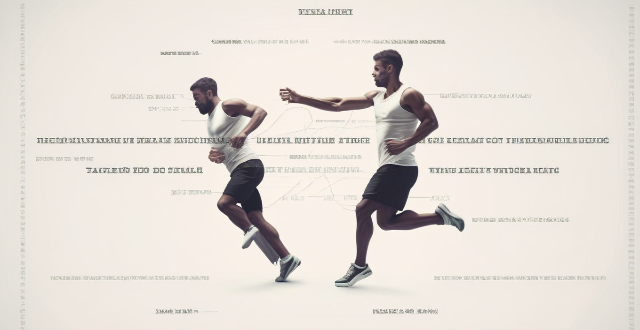
What role does mental training play in improving sports skills ?
The text discusses the role of mental training in enhancing sports skills. It outlines key points including mental toughness, visualization techniques, goal setting, self-talk, and concentration skills. Mental toughness helps athletes handle pressure, recover from setbacks, and persist through challenges. Visualization techniques can program the subconscious, reduce anxiety, and increase motivation. Goal setting clarifies objectives, tracks progress, and maintains motivation. Positive self-talk boosts confidence, enhances performance, and regulates emotions. Concentration skills block distractions, maintain attention, and improve decision making. The conclusion states that mental training is an essential component of overall athletic success.

What role does confidence play in developing a winning sports mindset ?
The article discusses the importance of confidence in developing a winning sports mindset, highlighting its role in allowing athletes to believe in their abilities, stay focused on their goals, overcome obstacles, and maintain a positive attitude. It also provides tips for building self-confidence through setting realistic goals, visualization, positive self-talk, seeking feedback, and thorough preparation.

How can athletes manage pre-game nerves and anxiety ?
Pre-game nerves and anxiety are common for athletes but can be managed through various strategies, including mindfulness techniques, physical preparation, mental strategies, support systems, and practice. These methods help athletes perform at their best by transforming nervous energy into focus and drive for success.
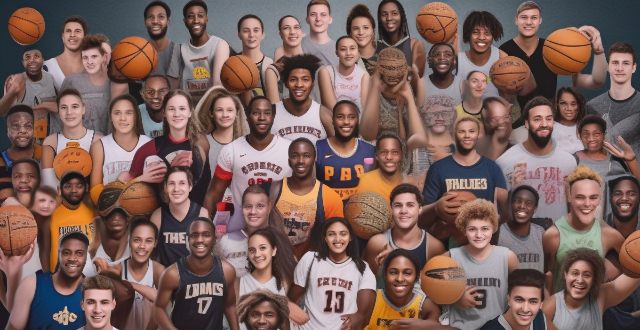
How do I become a professional athlete in basketball ?
To become a professional basketball player, start early, practice regularly, join a team or club, focus on academics and attend a good high school with a strong basketball program. Get recruited by a college program, excel in college, gain national exposure, hire an agent, and go through the draft process. Stay focused, maintain a positive attitude, and be willing to put in the work to achieve success.

Can playing multiple sports help in skill development ?
Participation in multiple sports can enhance overall athleticism and skill development by improving physical attributes, reducing injury risk, developing transferable skills, and promoting mental toughness. It also offers social benefits such as expanded networks and increased opportunities for exposure. While specialization has its advantages, playing multiple sports can help athletes become well-rounded competitors.
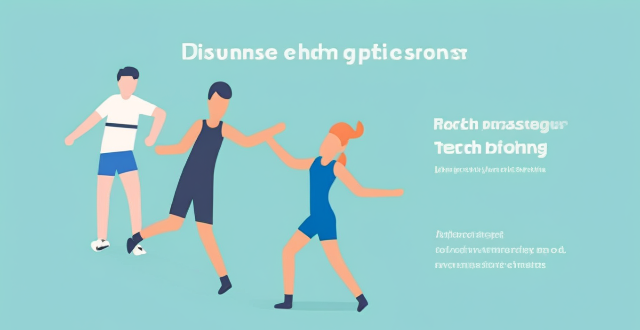
What techniques and strategies are commonly used in sport psychology counseling ?
The text discusses techniques and strategies in sport psychology counseling, which include goal setting, visualization and imagery, self-talk and affirmations, mindfulness and meditation, and breathing techniques. Goal setting helps athletes stay motivated and focused, while visualization and imagery build confidence and reduce anxiety. Self-talk and affirmations enhance self-confidence and motivation, while mindfulness and meditation improve mental clarity and resilience under pressure. Breathing techniques manage stress, anxiety, and tension. Incorporating these methods into training and competition preparation can help athletes achieve their full potential.

How can I handle setbacks and injuries in my sports career ?
This article discusses strategies to handle setbacks and injuries in sports career, including staying positive, setting realistic goals, practicing visualization, following medical advice, maintaining proper nutrition, incorporating cross-training, seeking professional help, building a support network, and practicing self-care.

How can sports leadership training programs benefit coaches and athletes ?
Sports leadership training programs can greatly benefit coaches and athletes by enhancing their skills and knowledge, leading to improved performance on and off the field. Coaches can improve communication, leadership qualities, motivation techniques, goal setting, and tactical knowledge, while athletes can develop self-confidence, teamwork skills, responsibility, time management, and mental toughness.

How does stress management contribute to sports health maintenance ?
Stress management is crucial for athletes' physical recovery, immune function, mental clarity, emotional well-being, consistency in performance, and competitive advantage. By managing stress effectively, athletes can improve their overall health and achieve success in their sport.
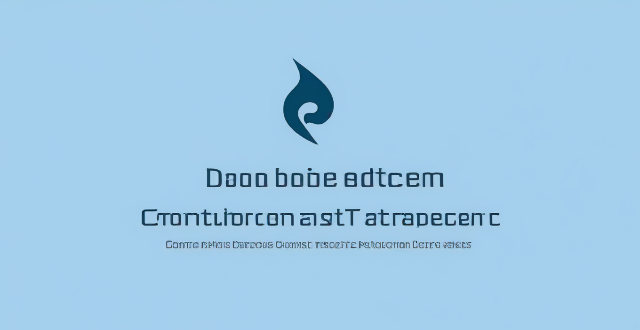
What benefits do sports-specific training programs offer ?
Sports-specific training programs offer several benefits, including improved performance, increased physical fitness, enhanced mental toughness, better recovery and injury prevention, and personalized coaching and support. These programs focus on developing the skills, techniques, and physical abilities required for success in a particular sport, helping athletes reach their full potential while also improving their overall health and well-being.

Can sports be used as a tool for personal growth and self-improvement ?
The text discusses the various ways in which sports can be used as a tool for personal growth and self-improvement. The author highlights the following aspects: - Mental toughness and resilience: Facing challenges and overcoming failure through sports can cultivate mental toughness and build resilience. - Teamwork and communication: Working together and effective communication are essential skills developed through team sports, which can enhance interpersonal relationships and group dynamics. - Discipline and time management: The structured approach required in sports can improve personal organization and time management skills, along with goal setting and strategic thinking. - Physical health and well-being: Sports contribute significantly to physical health by promoting fitness and endurance, and can also improve mental health by combating depression and anxiety. - Leadership and initiative: Sports provide opportunities for individuals to step up as leaders and develop problem-solving abilities, encouraging proactive behavior. - Self-confidence and self-esteem: Achieving mastery in sports can boost an athlete's confidence and self-esteem, fostering a positive self-image. - Adaptability and learning agility: Sports require athletes to adapt quickly to new tactics or game plans, encouraging a mindset of continuous learning that extends beyond the sporting realm. Overall, the text emphasizes that sports offer a comprehensive toolkit for personal development, encompassing benefits that extend far beyond the playing field. Engaging in sports can be a powerful catalyst for self-improvement and personal growth.